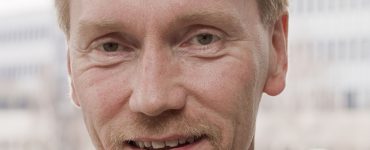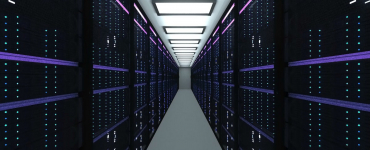With the Digital Agenda 2014 – 2017, the German federal government took on the topic digitalization in its entirety and relevance in federal policy for the first time. And in the current federal election campaign, Internet policy is playing an increasingly important role. Alexander Rabe, Head of the eco Policy & Law division, explains how the association is accompanies, analyzes and assesses this.
Mr Rabe, how is eco accompanying and analyzing the Internet policy aspect of the German federal election campaign?
A year before the end of this current legislative term eco had already formulated the core requirements of the Internet industry for modern Internet policy in our Internet Policy Agenda. With the associated study “Deutschland Digital” (Digital Germany), we have also provided federal politicians with an overview of the German population’s attitudes to the Digital Agenda.
For the last year, in the run-up to the federal election, we wanted to do something special, and under the banner of “Wahl/Digital 2017” we ran a campaign over a range of channels spanning the entire year, presenting to federal politicians our demands and our perspectives on the necessary future topics for Internet policy.
In four special events in our polITalks series between March and June this year, we asked Internet policy-makers from the four parties currently represented in the German federal parliament about their plans for the next legislative term and their positions on current Internet policy topics. The highpoint of the campaign is our Network Policy Forum on 5 September 2017. In this event, we want to discuss the coming requirements and the vision for a future-proof Internet policy in Germany together with renowned guests from politics and industry.
We look forward to contributions by the Minister of the Federal Chancellery, Peter Altmaier, and the Head of Microsoft Deutschland, Sabine Bendiek, and we are happy to welcome Federal Minister for the Economy, Brigitte Zypries and Leader of the FDP, Christian Lindner as guests. A worthy conclusion to our campaign, where we will present our Network Policy Party Check and compare our requirements with the positions in the election programs of the parties.
The campaign “Wahl/Digital 2017” has also been accompanied by the “Digital Policy Topic of the Month” since November 2016, in which every month eco surveyed experts, German companies and the German population on a core topic of the Internet Policy Agenda. All of the topics and figures from the past year can be found (in German) at eco-digitalpolitik.berlin.
In short: We’ve achieved a lot in the last 12 months, and we’ve identified many viewpoints of the parties represented in parliament – to make an uncomplicated comparison between the parties’ Internet policy viewpoints and your own political perspective, I recommend our new “eco Wahl/Digital Check 2017”.
How does the “eco Wahl/Digital Check 2017” support voters in their decision-making?
The online tool offers users the chance – similar to the Federal Agency for Civic Education’s Wahl-O-Mat – to compare their own Internet policy viewpoint with that of the parties currently represented in the federal parliament.
As I already said, in our event series Wahl/Digital 2017 between March and June 2017, we asked a total of 13 Internet policy-makers from the parliamentary factions for their positions on five focal areas of the Digital Agenda. This positioning is the foundation of the Wahl/Digital Check. The Wahl/Digital Check is not a recommendation for voting preferences, but rather provides information on Internet policy and on the German federal election.
What is the basic content?
Internet policy-makers from the four parliamentary parties were asked to give their position on a range of propositions. Alongside simple positioning – like “agree”, “neutral”, “disagree” or “no answer” – they could also explain their position in a short paragraph. In our case, this was necessary, because the politicians may, to a certain extent, have had varying opinions to the official party line on certain topics. I am really very grateful to all participants among the parliamentarians and in eco who contributed to the success of this tool – it was a lot of work, and I hope it’s fun to click through.
According to your own observations, has Internet policy become more important for the parties since the last federal election campaign?
Even the legislative term behind us had generally a special importance for the development of Internet policy in Germany. With the Digital Agenda 2014–2017, the federal government addressed the topic digitalization – for the first time – in its entirety and with relevance for both Germany as an industry location, and for many other areas of our society.
The status of digital topics has definitely increased. We can also see that we now have strong Internet politicians in all of the parliamentary parties – people who understand the current Internet-policy challenges and work with great professional expertise on balanced regulations. Unfortunately, however, they often lack broad backing within their parties.
So we really hope, for example, that a leading Digital Agenda committee will finally be established in the coming legislative term, which will grant Internet policy – but also Internet politicians – a higher status. In our view, the continuation of the Digital Agenda is – of course – a must.




